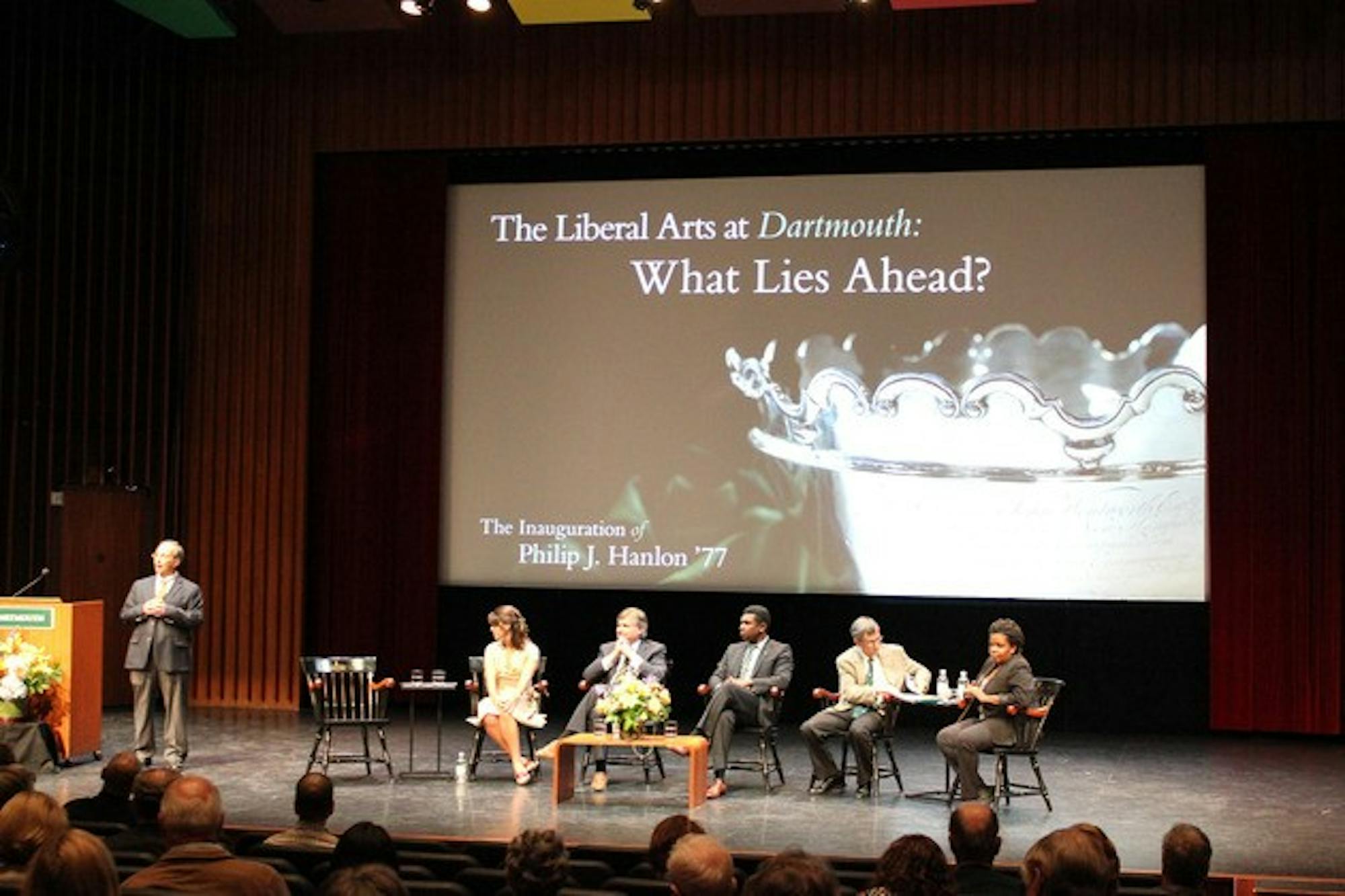Mastanduno described the liberal arts as on "the defensive" due its the high cost of such an education and emerging technologies that cheaply deliver similar courses online.
"What is it for, why do you come here?" Mastanduno said. "Is it a voyage of self discovery? To get a better job?"
Panelists included physics and astronomy professor Stephon Alexander, history professor Leslie Butler, College trustee Annette Gordon-Reed '81, Dean of Thayer School of Engineering Joseph Helble and English professor Donald Pease.
Butler discussed debate's history from the Gilded Age, emphasizing the "reactiveness" of liberal arts institutions.
"Colleges are looking out at the world fearing irrelevance and marginalization," Butler said. "Liberal arts clearly exist in a culture and must be responsive to needs and changes in that culture. However, colleges tend to stay apart from the culture because the needs and problems of now won't be the needs and problems of tomorrow."
Pease spoke about the changing attitude toward the liberal arts at Dartmouth since his arrival in 1973. Pease referenced former College presidents William Tucker, John Sloane Dickey and John Kemeny's approaches to education and described the College's process of "liberating itself" from previously onerous requirements such as attending chapel and taking classes in Latin and Greek.
Alexander spoke about the liberal arts in relation to science, reflecting on his own choice between attending a technical university and liberal arts college. Growing up in the Bronx, he felt pressured by his parents to attend the Massachusetts Institute of Technology rather than Haverford College. After attending an admitted students weekend at Haverford, however, Alexander knew a liberal arts institution was a better fit for his goals.
Hui Cheng '16 said Alexander's experience resonated with her.
"I think Dartmouth students often do not realize how lucky they are to have access to an environment that nurtures discussion among liberal arts students," she said. "I wish there would have been more perspectives like Alexander's that illustrate the difficulty in choosing between a liberal arts education and a more practical, technical education."
Helble addressed Dartmouth's five-year liberal arts and engineering program, where students earn bachelor's of arts and bachelor's of engineering degrees. He said he did not see the missions of liberal arts and engineering programs as separate.
"The liberal arts teaches us to question, explore broadly and ask why?'," he said. "I think engineering complements that well by teaching us to ask why not?'"
Noah Rickerich '16 said he saw similarities between liberal arts and engineering programs.
"I was very compelled by Joseph Helble's mandate to include engineering as a liberal art and apply what we're learning here at Dartmouth in a more practical and solution-oriented sense," he said. "I think in the future the two will be intrinsically linked."
Gordon-Reed said her liberal arts education at Dartmouth was "explorative." Although she entered the College as a prospective government major, Gordon-Reed decided to pursue her passion for history instead. She said she appreciated time away from a "fast-paced" world to reflect.
"There's something to be said for being away from the world, the hustle and bustle of the world in a place where you can concentrate on reading and thinking," she said.
Hanlon closed the discussion with his interpretation on the value of a liberal arts education, which he described as achieving a greater "capability of mind."
The "Liberal Arts at Dartmouth: What Lies Ahead?" discussion was held Thursday afternoon in Spaulding Auditorium and planned as part of the Inauguration program.




